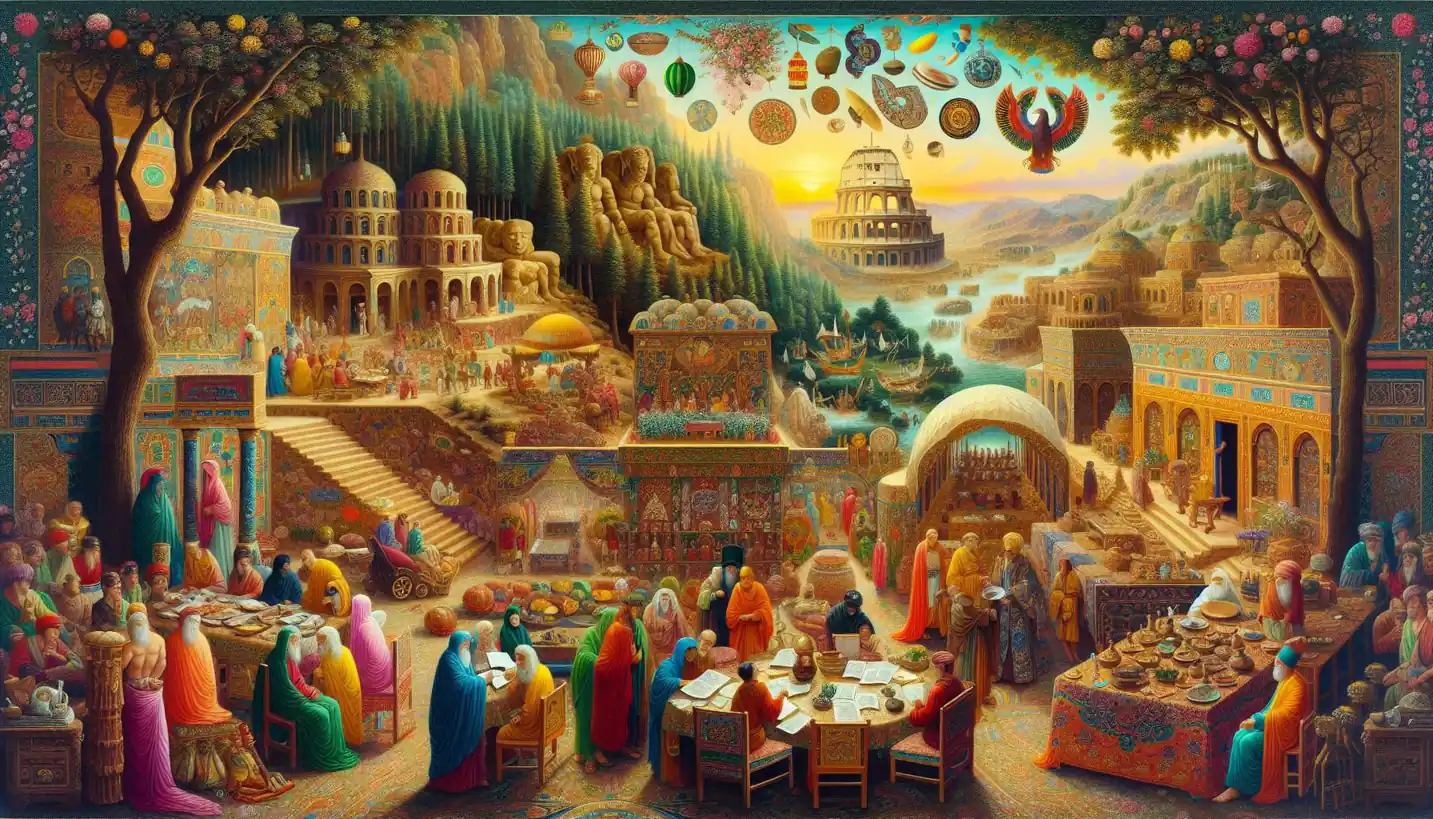· History · 5 min read
Devshirme System: A Unique Chapter in World History
The Devshirme System is a fascinating yet complex chapter of the Ottoman Empire. Unravel how this unique practice shaped society and governance.

At the heart of the Ottoman Empire was a unique system known as the Devshirme. This term might seem a little hard to pronounce, but it translates to something quite profound. Essentially, it means “collecting” or “gathering,” which is pretty appropriate once you understand what it involved.
Imagine you’re living in a small village within the sprawling Ottoman Empire, which covered much of Southeast Europe, Western Asia, and North Africa at its height. One day, Ottoman officials arrive and select several boys to be taken to serve the empire. This was the core of the Devshirme system—a kind of recruitment or conscription that was both a pivotal and controversial part of the Ottomans’ rule.
The Origins and Purpose of Devshirme
The roots of the Devshirme system trace back to the 14th century. The Ottoman Empire was expanding rapidly, and with this growth came a need for a loyal and efficient administrative and military class. But there was a twist: the empire was predominantly Islamic, and its leaders wanted to maintain control over both governance and the military without risking the power struggles that might come from existing Ottoman families.
So, the Ottomans turned to Christian communities within their empire—especially those in the Balkans. The boys taken through the Devshirme system were groomed to become Janissaries, elite soldiers serving the Sultan, or they would rise to become high-ranking officials and statesmen. By converting these boys to Islam and training them from a young age, they became loyal servants to the Sultan.
The Process of Devshirme
The selection process was meticulous. Officials would identify healthy, bright boys aged between 8 and 18. These boys would leave their families and communities, often traveling long distances to reach the heart of the empire, where their new lives would begin.
Once selected, they were converted to Islam and immersed in the culture and language of the Ottomans. Many received education in various fields such as administration, military tactics, and the arts. This rigorous training and transformation prepared them for roles that were both prestigious and powerful, setting them apart from traditional social hierarchies.
Life Under Devshirme
For many boys, this system was a pathway to a future they could never have imagined. While they were essentially taken from their families, the Devshirme system offered opportunities that were rare for their time. They could rise through the ranks based on merit, brains, and bravery, which was less common in other parts of the world.
Janissaries became famous for their military skills and discipline. Imagine them as a kind of elite force, almost like the special forces of their day. Some rose to positions of significant power and influence, directly serving the Sultan and shaping the strategies of the empire.
On the flip side, though, being uprooted from one’s family and community was undoubtedly difficult, and not everyone saw this path as advantageous. Religious conversion and cultural assimilation were deeply personal transformations which came with psychological challenges.
The Influence of Devshirme on the Ottoman Empire
The Devshirme system wasn’t just about military might; it ultimately shaped the very fabric of the Ottoman administration. Many of the collected boys became grand viziers, military commanders, and influential figures. Their non-Turkish heritage was actually an advantage in the eyes of the Ottoman rulers. It meant they had no existing ties or loyalties other than to the Sultan himself, thereby reducing the risk of rebellion and maintaining a stable power structure.
Likewise, this system helped integrate the multicultural elements of the empire. By bringing young Christians into the heart of the Ottoman power structure and converting them to Islam, the empire could further unify its diverse subjects under a common banner.
Controversies and the End of Devshirme
Over time, the Devshirme system faced criticism and controversy. Many families resented having their sons taken away, and the forced religious conversion was a sore point among Christian communities. This criticism grew as more stories spread about boys being taken against their will and families’ struggles.
By the 17th century, with changing political landscapes and internal reforms, the Devshirme system began to wane. The Janissaries themselves evolved into a powerful interest group within the empire, and as such, they began recruiting on their own terms, moving away from the traditional methods.
Eventually, the practice was phased out entirely, as the Ottoman Empire underwent modernization and reform attempts, attempting to align more closely with its European neighbors.
Legacy of the Devshirme System
Reflecting on the Devshirme system today offers a unique window into how empires sought to survive and adapt through integration and control. Most importantly, it highlights the fascinating dynamics between power, loyalty, and cultural assimilation.
Through the stories of those who navigated this system—rising from small village life to influence the course of imperial affairs—we gain insights into the complex history of one of the world’s most influential empires.
The Devshirme system may no longer exist, but its echoes are still felt in our modern understanding of governance, cultural exchange, and the ways societies strive to build unity amid diversity. Its history encourages a deeper reflection on the ways history molds the present and inspires curiosity about how societies can learn from the past to shape the future.


